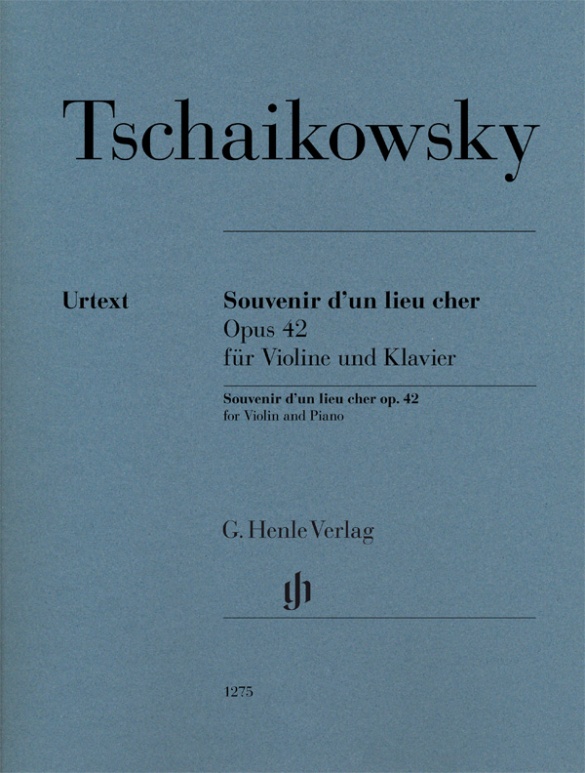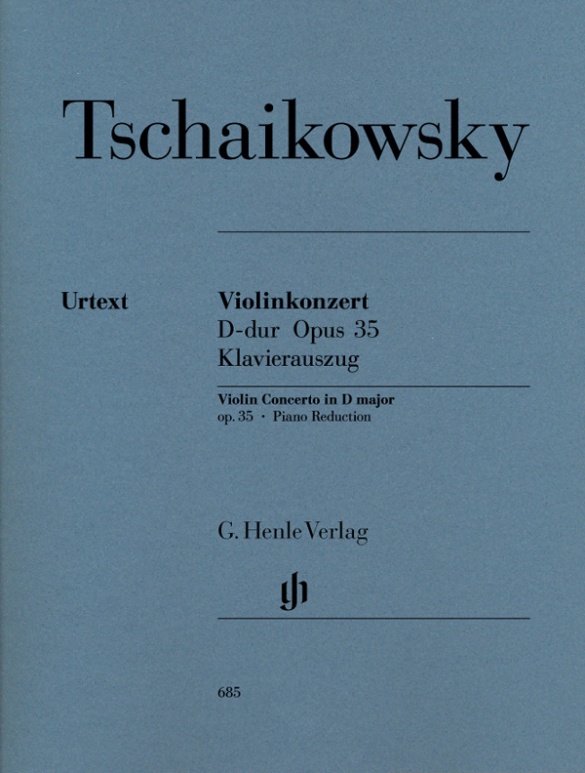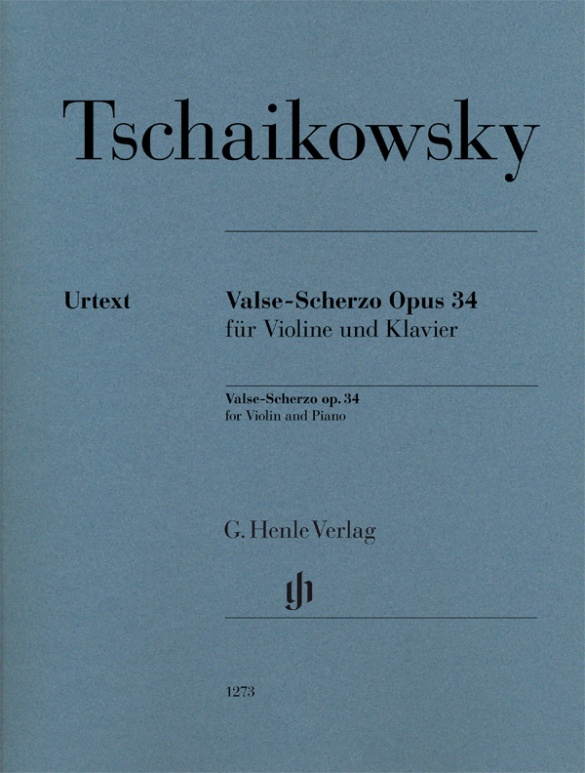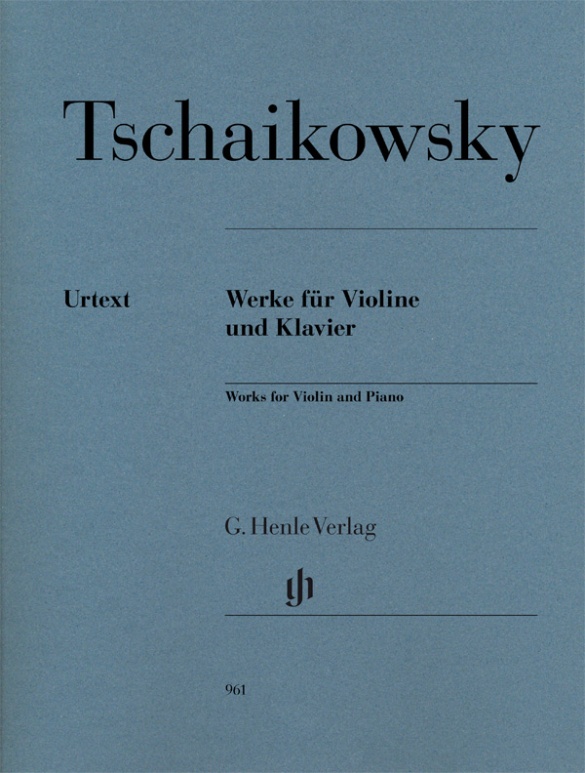Peter Ilich Tchaikovsky
Souvenir d'un lieu cher op. 42 for Violine and Piano
“Memory of a dear place” is the title given to this collection of three enchanting pieces for violin and piano. The “place” in question was the country estate of Brailov that belonged to Tchaikovsky’s patron and friend Nadezhda von Meck. He stayed there in idyllic seclusion in May 1878 and completed this work. These pieces were composed very close in time to his Violin Concerto, and they too demonstrate Tchaikovsky’s matchless gifts as a Romantic master of melody. For this edition, the Russian Tchaikovsky specialist Alexander Komarov offers the highest degree of editorial precision, having drawn on all the relevant sources from both Russian and international archives. In the course of his work he has also been able to disprove beyond a doubt the view held up to now that the title Souvenir d’un lieu cher was only added after Tchaikovsky’s death.
内容/詳細
作曲家について
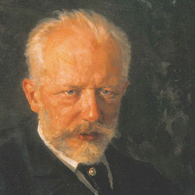
Peter Iljitsch Tschaikowsky
Most important and first professionally trained Russian composer of the nineteenth century; main works include operas, ballet music, six symphonies, three piano concerti, and one violin concerto, as well as songs, chamber music, and piano music.
| 1840 | Born in Votkinsk on May 7, the son of a mining engineer. |
| 1849–59 | Educated as an attorney. |
| 1861–65 | Study of music; he numbers among the first graduates of the St. Petersburg Conservatory. Piano studies with Anton Rubinstein. |
| 1866–76 | He relocates to Moscow to teach harmony, instrumentation, and free composition at what later became the Moscow Conservatory. Composition of Symphonies No. 1 through 3 (Opp. 13, 17, 29), the Piano Concerto No. 1 in B-flat minor, Op. 23, the three string quartets (Op. 11 in 1871, Op. 22 in 1874, Op. 90 in 1876). |
| 1868–76 | Active as a reviewer. He attends the premiere in Bayreuth of Wagner’s “Der Ring des Nibelungen” in 1876. |
| from 1877 | Travels at home and abroad. Beginning of patronage from Nadezhda von Meck. Composition of the Symphony No. 4 in F minor, Op. 36, premiered in Moscow in 1878. Premiere of the ballet “Swan Lake,” Op. 20. |
| 1879 | Premiere in Moscow of “Eugene Onegin,” his best-known and most important opera. |
| 1884 | Premiere in Moscow of “Mazeppa.” |
| from 1887 | Regular performances as conductor of his and others’ work. He is regarded abroad as the most important exponent of Russian music |
| from 1888 | Granted an annuity for life by the Tsar. |
| 1888 | Composition and premiere in St. Petersburg of the Symphony No. 5 in E minor, Op. 64; fate motive appears as a kind of “idée fixe.” |
| 1892 | Premiere of the ballet “The Nutcracker,” Op. 71. |
| 1893 | Composition of the Symphony No. 6 in B minor (“Pathétique”), Op. 74, which is premiered in St. Petersburg in October that year. |
| 1893 | Death from cholera in St. Petersburg on November 6. |
校訂者や運指担当者について

Klaus Schilde (運指)
Prof. Klaus Schilde, born in 1926, spent his childhood in Dresden. There he was greatly influenced by Walter Engel, who taught him the piano (Kodaly method), composition and violin. From 1946–1948 he studied at the music conservatory in Leipzig with Hugo Steurer. After moving to the west in 1952 he studied with Walter Gieseking and Edwin Fischer, as well as with Marguerite Long, Lucette Descaves and Nadia Boulanger in Paris.
Schilde won numerous prizes. From 1947 onwards he gave concerts as a soloist and chamber musician on almost every single continent with renowned orchestras. He taught at the music conservatories in East Berlin Detmold, West Berlin, Munich, Tokyo (Geidai) and Weimar. From 1988–1991 he was President of the Staatliche Hochschule für Musik und Theater in Munich, where he also taught for decades as a professor. There are numerous radio and television broadcasts with Klaus Schilde as well as CD recordings. Schilde has contributed fingerings to almost 100 Henle Urtext editions.
Prof. Klaus Schilde passed away on 10 December, 2020.
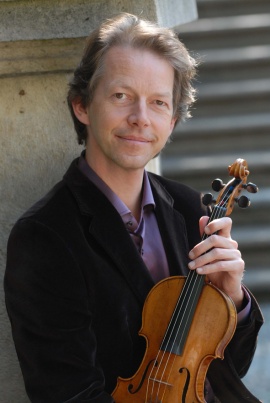
Ingolf Turban (ヴァイオリンの運指とボーイング)
製品安全に関する情報

G. Henle Verlag
製品の製造元に関する情報はこちらでご覧いただけます。G. Henle Verlag
Forstenrieder Allee 122
81476 München
info@henle.de
www.henle.com
おすすめ
autogenerated_cross_selling
このタイトルを含む他の版
このタイトルを含む他の版


